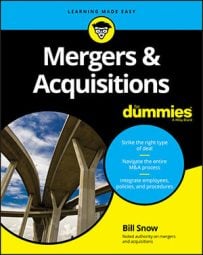Buyers, unsurprisingly, want to ensure that the finances are as they expected when they proposed the M&A deal. The following are the areas that the Buyer should thoroughly examine as part of due diligence:
M&A due diligence: Debt and financial dealings
A wise Buyer needs to fully understand the Seller’s financial dealings for two basic reasons. First, Buyer wants to know what she’s getting herself into. In other words, are any hidden or unforeseen problems with a creditor on the horizon? Second, she wants to understand the company’s ability to garner financing. Required information may include
The rundown of all promissory notes, commercial paper, loan or credit agreements, letters of credit, and financial surety/performance bonds or similar credit support devices
Listing of all security agreements, pledge agreements, mortgages, and other agreements where another company has a claim to Seller’s assets
Listing of any compliance certificates, including borrowing base certificates and covenant compliance calculations
Schedule and details of any existing defaults under credit arrangements and any events that, with the giving of notice or the passage of time, will become such a default
Buyers should retain a capable and experienced accounting and auditing firm to conduct a thorough investigation of Seller’s financial dealings.
M&A due diligence: Taxes
Not surprisingly, taxes are a major concern for any Buyer. Taxes run the gamut from income taxes to payroll taxes to sales taxes. Paying taxes drives everyone mad; not paying taxes may send you to jail! The following list outlines tax information Buyers should review during due diligence:
All federal, state, local, and foreign tax returns
State sales tax returns
All employment tax filings
Real estate and property tax filings
Copies of any tax liens
Listing and description of any pending or threatened disputes regarding tax matters
Nonpayment of any kind of tax is serious, of course, but Buyers should be especially on guard for a Seller who has not made FICA payments. Nonpayment of payroll taxes is a major warning sign for any Buyer: When a company stops making FICA payments, the owners or executives can face jail time.

